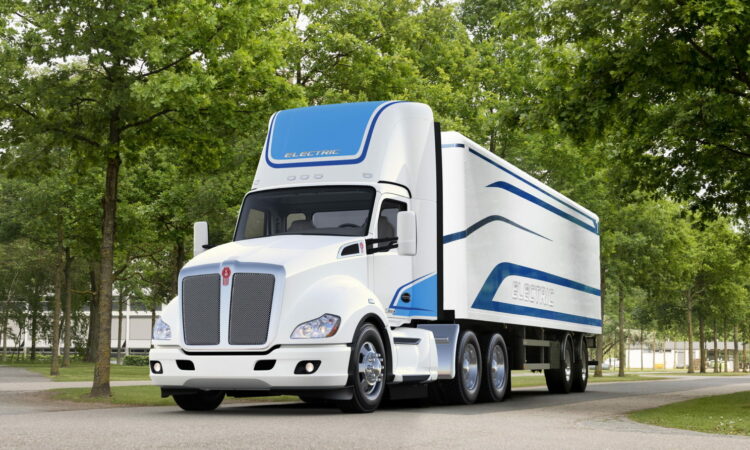Arebounding U.S. economy should help sustain the recent growth in new truck orders, PACCAR Inc. (NASDAQ: PCAR) CEO Preston Feight said Tuesday.
“Basically the truck industry is doing pretty well,” Feight said on a call with analysts following the release of fourth-quarter earnings. “We don’t expect that to change. Truck utilization is high. We’re even starting to see signs of green shoots in the oil and gas industry. All of that combined points to a good year for us in the U.S. and Canada.”
The parent company of Kenworth, Peterbilt in North America and DAF Trucks in Europe and Brazil beat the consensus estimate for revenue. It fell 3 cents a share below the consensus for income.
PACCAR increased its estimate of 2021 U.S. and Canada Class 8 truck industry retail sales to a range of 250,000 to 280,000 trucks.
Parts sales record
The Belleville, Washington-based company set a record for parts sales of $1.07 billion in the fourth quarter. One in four orders was handled via e-commerce, said Harrie Schippers, PACCAR president and chief financial officer.
“We’ve made investments in our distribution network so next-day delivery and even same-day delivery of parts has increased their percentage,” Feight said. “We think growth will continue in the coming years for our parts team.”
PACCAR executives projected a 10% increase in deliveries this quarter with a gross margin of 13.5%. Both depend on a strengthening U.S. economy.
“Our order share grew in 2020 as a percentage of the industry,” Feight said. “We feel well positioned to continue growing in 2021.”
New products should contribute. The first of those is a truck Peterbilt is teasing for reveal on Feb. 3.
“This is going to be a really exciting year for PACCAR in terms of new product introductions,” Feight said.
Electric truck production
PACCAR will begin building Kenworth– and Peterbilt-branded medium-duty zero-emissions electric trucks in the second quarter. Both qualify for significant rebates through a California voucher program. Most electric trucks are pointed toward the Golden State because of its focus on curbing air pollution.
“We expect the industry will have volumes in the hundreds in the coming year or two, and then as we get to the 2025 time frame, that might grow into the thousands,” Feight said. “We’d expect we’ll have a good market share representation as the industry comes along.”
Momentum is building for electric models, albeit slowly.
“People are interested in trying a truck, or two or 10. That’s kind of the scale you’re talking about right now for zero-emissions vehicles,” Feight said. “It still depends heavily on government subsidies to make it an economically workable solution.”
Kenworth is working with Toyota (NYSE: TM) to test fuel cell electric versions of its T-680 model, That includes 350 miles of range on a single hydrogen fill-up. One of the fuel cell trucks summited Pikes Peak in Colorado last year.
But PACCAR is not committing to regular production of fuel cells yet because of the lack of a fueling infrastructure.
“The energy density at this time is higher for hydrogen fuel cells, so that’s an advantage they have,” Feight said. “We think of ourselves as powertrain agnostic. We do think diesel engines will remain the primary mode of power for up to the next decade.”
Autonomous partnership
In recently partnering with Aurora AI for a Level 4 autonomous truck, PACCAR joined Daimler Trucks North America and Navistar International Corp. in finding a partner to develop software for driverless trucking. Level 4 allows operation without a human driver in most conditions.
“We have great focus on technology in the space of zero-emissions vehicles and connected services, autonomous vehicle development, and [advanced driver safety systems], so we have a lot of great things going on that build toward a strong future,” Feight said.


